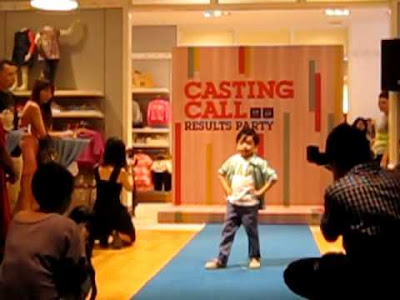 |
| Kid appearing for an audition |
1. Easy to work with
Firstly, casting directors look for a child or an actor who is easy to work with. A casting director prefers someone committed and dedicated to their project and is a normal reliable child. On the other hand, no casting director would want someone who is either rowdy and runs around, arrogant or unable to perform confidently. They want an actor who is easy to work with and talk to, and have a nice, friendly personality.
Lesson 1: Teach your kid good manners
2. Appearance
Casting directors often look for a 'certain appearance' of a potential child actor. Whenever a casting director or a reader reads a script, they have a certain image of that character. When a director looks at a headshot, they may see something they like that would suit the character. Therefore they always tend to look for a child actor who fits what they have pictured, although there may be a chance they may consider a different face that stands out too!
Lesson 2: Find out if possible, whether your child meets the physical, mental, cultural and social requirements of a character before you take your kid for an audition
3. Easy to direct
Furthermore, at auditions, casting directors, definitely look to see if you are easy to direct. As a director they picture a scene and how it should be performed. It is important that their child actor is flexible and spontaneous, so that they can follow the direction of what the director wants. There may be in some cases during auditions, when, after performing, a casting director may ask the candidate to do it in a certain way. For example, saying it faster, doing a specific gesture or being more emotive. This may highlight they see potential, but they want to see if you can act their vision of what they have for a scene.
Lesson 3: Ensure that the kid has a proper and professional training
4. Acting abilities
Casting directors also want to see if you can act! Though it is simple as it sounds, they want to see if you can express that particular emotion very well. In some cases, they would want to see you really exaggerate a certain expression, for example a comedic scene, or at times they want you to be as natural as possible, or 'normal'.
Lesson 4: Develop the power of imagination
5. Past experience and training
A definite advantage. If you have experience in films, TV or commercials or being trained by a good acting coach or a kid's acting school, they know that while on a set, you will not waste their time in learning acting for camera, blocking
Lesson 5: Encourage your kid to participate in school plays, community functions, social engagements and in commercial ads, TV shows irrespective of whether it's small or a big event
Partly based on
